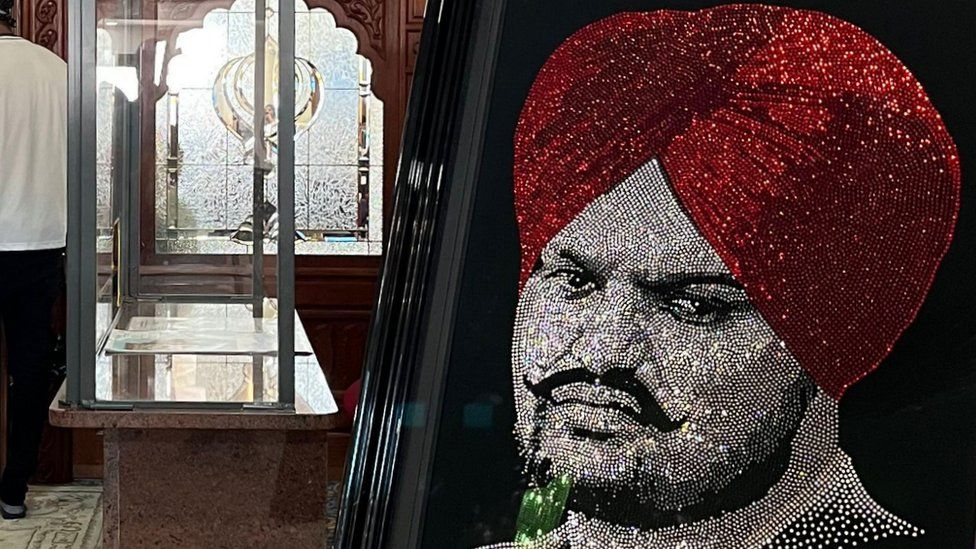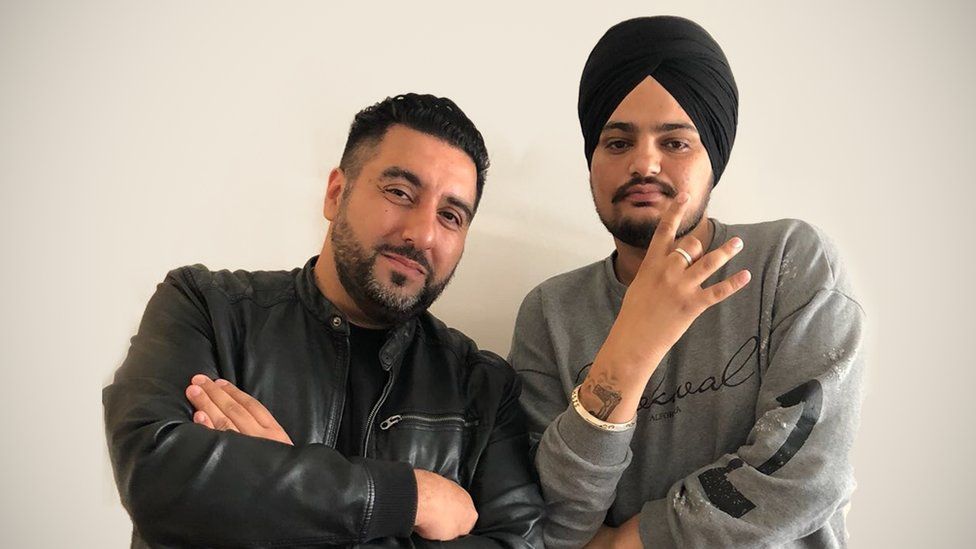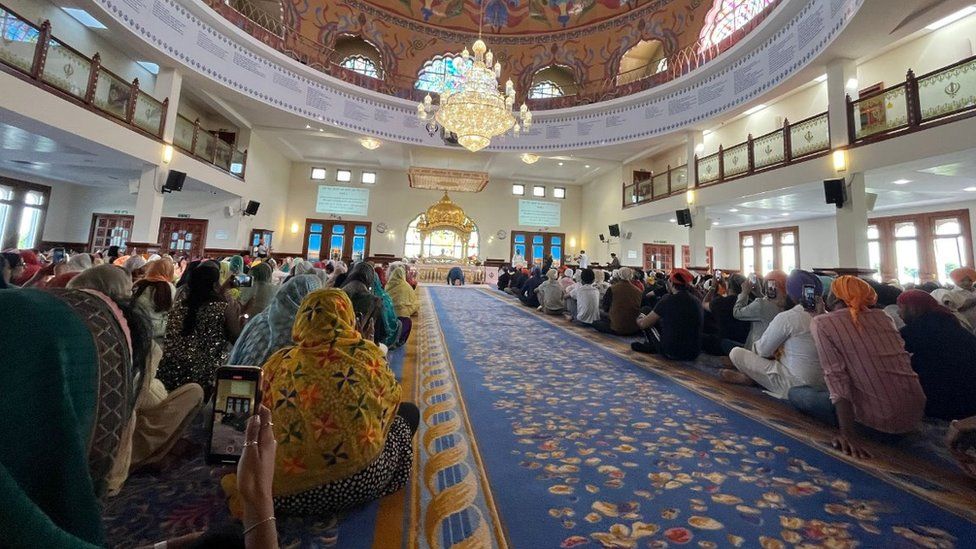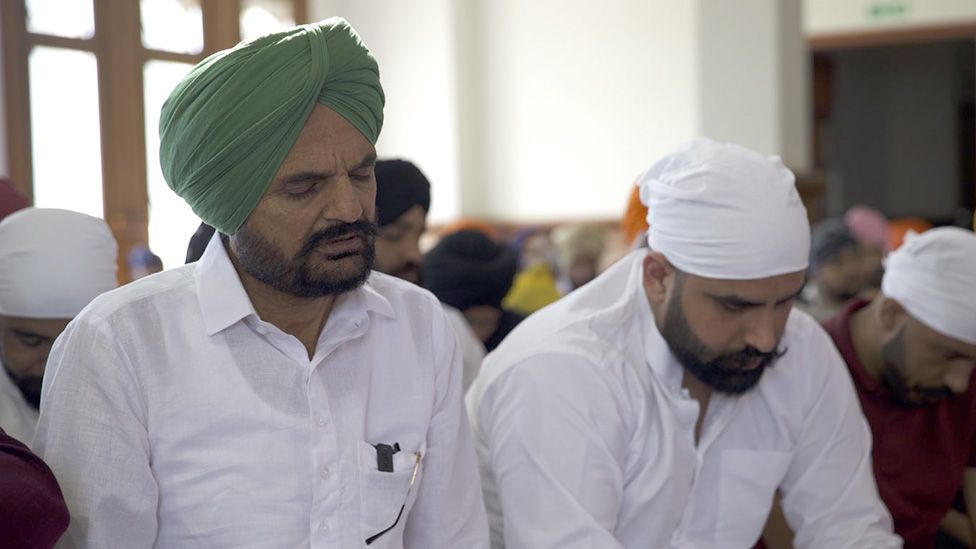Sidhu Moose Wala wasn’t your average hip hop artist.
He wore a turban, he spoke in deep Punjabi, he was a politician and a philanthropist.
His music had made him a household name in his home state, and earned him international recognition.
He counted superstar rapper Drake as a friend, and collaborated with Tione Wayne, Bohemia, Steel Banglez and Burna Boy.
So his shocking death, aged 28, in a gun ambush last May was felt around the world.
This week marked a year since his death and fans, friends and family members in the UK have been holding ceremonies to remember him.
So how did a singer-songwriter from Moosa, a tiny village in India, grab the attention of stars like Drake and make waves around the world?
Who was Sidhu Moose Wala?
Moose Wala, real name Shubhdeep Singh Sidhu, graduated in the Punjab and moved to Canada for further studies.
That’s where his music career kicked off with his first single, G Wagon, in 2017.
Later that year that he delivered his breakthrough soundtrack, So High.
In 2020 he launched his own label, 5911 Records, and the following year performed at Wireless Festival – said to be the first Indian singer to do so.

Moose Wala was criticised by some for promoting gun culture in his early material.
His lyrics were often controversial and centred around the politics of Punjab and the history of his Sikh faith.
In 2021, he joined the Congress Party – the Indian government’s main opposition party.
At the time of his death he was engaged, and had just postponed his marriage ceremony, originally planned for the previous month.
Following a flood of tributes from fellow musicians, Afrobeats star Burna Boy visited Moose Wala’s village last month, and gave his parents a crystal portrait of their son.
‘Something new’
BBC Asian Network presenter and producer Dipps Bhamrah says Moose Wala brought a fresh sound and persona to Punjabi music:
“For us here in the UK, we were at a point when artists from our parents’ generation were still around, other singers were doing the same thing,” he says.
“There was nothing new or interesting.
“But then this new guy from Canada comes along with a unique voice, a style we hadn’t heard before.
“It was something different and it just connected with us.
“Not just young Punjabis but all ages and people who don’t even speak Punjabi were drawn in.”

The breadth of Moose Wala’s fanbase was evident at memorial events in the UK this week – prayer services in London, Gravesend, and a candlelit vigil in Birmingham.
BBC Asian Network spoke to Sandeep Kaur and her niece Manveer at one.
“I’ve been listening to him from day one,” says Sandeep.
“He meant a lot to British Punjabis born and raised here because they got closer to their language, their culture, their roots.
“I have a nephew who didn’t know anything about Punjab and after listening to Sidhu’s music he’s been asking questions.
“He’s made the young generation more connected to our Punjab and Sikhism.”
Manveer says: “His songs were very powerful and he meant a lot to the young generation.”

Teenage friends Sukhveer Singh and Jagbir Sahota agree that Moose Wala brought them closer to their heritage:
“He had spirit, he had heart. He raised issues in his songs that made us think,” says Sukhveer.
“His music brought people from all over the world, all cultures, all languages together,” adds Jagbir.
“Just look at his collaborations, the rappers who have spoken in support of him. There will never be another Sidhu Moose Wala.”
‘An amazing aura’
Sandy Joia, from Kent, had a close relationship with Moose Wala and says the two were like brothers.
The rapper would stay with him in Kent whenever he visited the UK.
“Even now when I talk about him I get goose bumps,” says Sandy.
“Sidhu had an amazing aura, which we can still feel today. Burna Boy came to our house recently and even he said it feels like Sidhu is still here.”
To the world, Moose Wala was an icon. But to his parents, he was their only child.
“There have been many stars in Punjab but Sidhu was the first to make his dad a star as well,” says Balkaur Singh, Moose’s dad.
“I went everywhere with him, I featured in some of his music videos, I was backstage at his performances.
“I was also his critic. Before releasing a song he would always play it to me first for my opinion.
“That was our father-son relationship.”

Balkaur Singh is in the UK attending the ceremonies honouring his son.
“I feel so proud when I meet all these people and see the love my son gained in the 28 years of his life,” he says.
“It’s a portion of his love that I am receiving,” he says.
The murder case
There are many theories around Moose Wala’s killing – some believe it was inter-gang rivalry, others say it was orchestrated by competing musicians and some believe it was a political conspiracy.
A year since his death dozens have been arrested but nobody has faced trial.
His parents hope they live to see the day their son’s killers are brought to justice.
“It’s been a year and not a single case has been brought against someone,” says Balkaur.
“Some say they’ve arrested 25 people, others say they’ve arrested 30 but not a single person has been brought to court.
“At this rate, we’ll be long gone from this Earth. When will we get justice?
“Our plea to the Indian authorities is to fast-track this case so my son’s killers can face trial.”
By Raj Kaur Bilkhu for bbc.com




